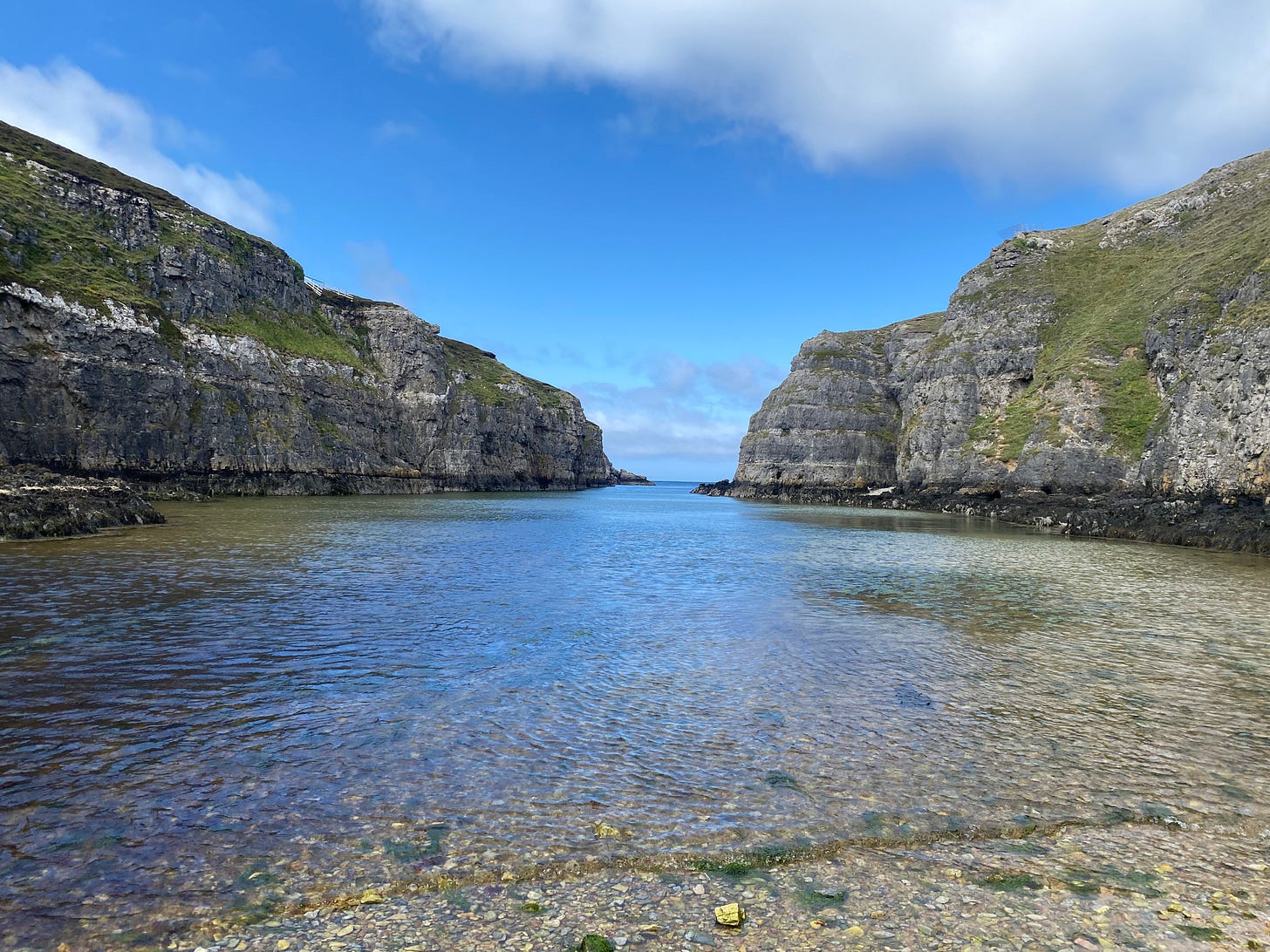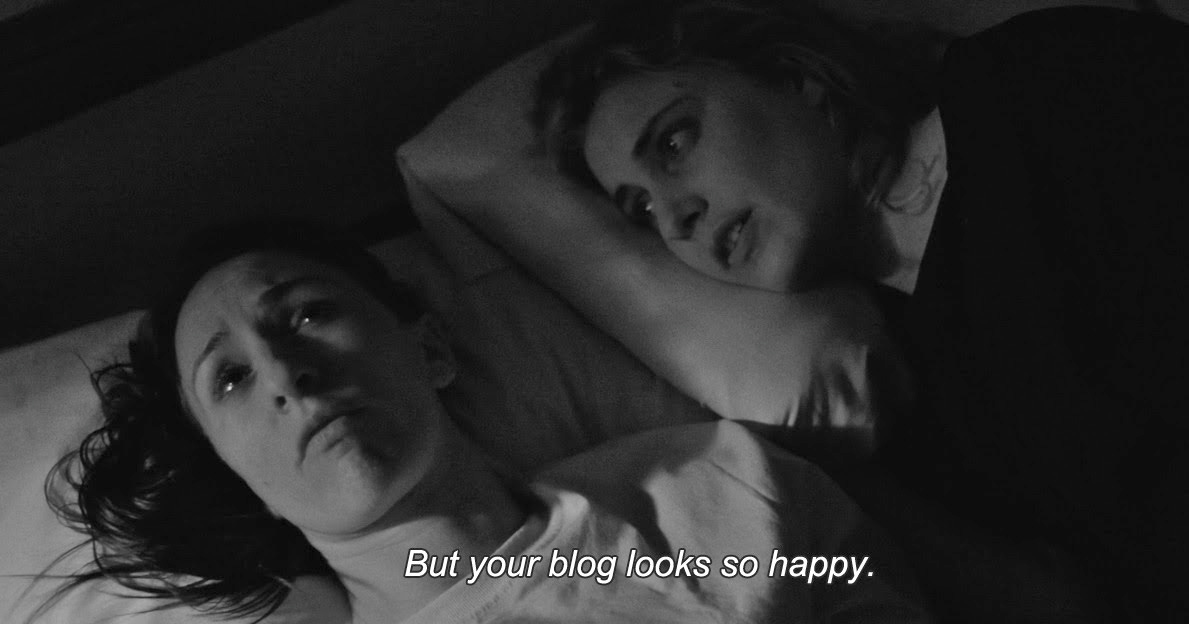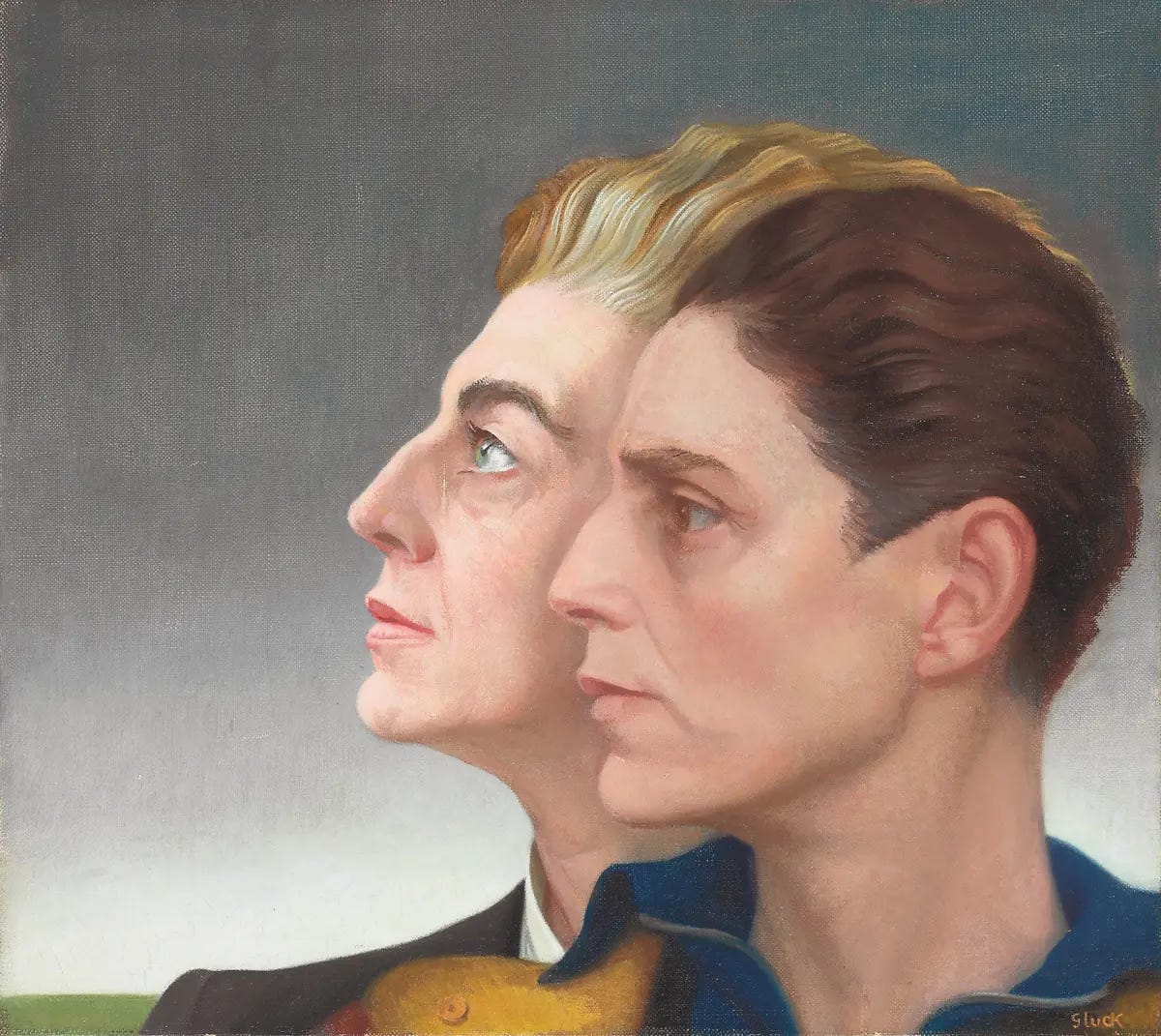Which Way Home?
Abby Lacelle on how every return is a departure
The Sunday Letter #22
As I mentioned in last week’s letter, we moved! It has been a rollercoaster of a week and I’m looking forward to finally settling down in the coming days. In the meantime, my brilliant friend abby has agreed to write today’s Sunday letter in the first ever Solitary Daughter guest-post. I hope you enjoy Abby’s dreamy and incisive writing as much as I do. I’ll catch you all next week! — Raquel.
After two planes, some delay, turbulence, and even an aborted descent, our pilots landed us safely at YYZ, where, for the first time in ten months, my soles touched down on Canadian soil. I am a citizen here, I was raised here—this is supposed to feel like home, because it is supposed to be home. An anxious flyer, I knew that in the sky I would feel breathless and numb and distracted, but even aground I’ve been sleeping much too much, discombobulated, spending all my time bra-less in stretchy cotton pyjamas. I’ve been yawning and wilting under the heat and barometric pressure—summer in the city is stifling. No amount of Iced Capp can cool or energize me. No one reminded me that I have chronic headaches in this part of the world; I seem to have been able to evade them elsewhere. No one told me it would take time to reaclimate to the atmosphere let alone the culture. People don’t talk (to me) here like they did in Scotland. People don’t let you cut ahead in the grocery queue (read: line) if you have fewer items. It seems Torontonians walk quicker and don’t meet your eyes as you cross them on the sidewalk while they hurry off to whatever important business they’re seemingly always inevitably late to conduct despite the rush. I’m lethargic, I’m praying for rain. Anything but this blue sky that looks diluted and pales to the indigos and charcoals—those polarized and expressive saturations of the cosmos—of which I’ve grown fond.
For those who do not yet know me, I’m a graduate English student from Ontario who’s spent this past year living in Glasgow. I—likely burnt-out but unwilling to acknowledge or admit it—relocated with my Glaswegian partner after completing my Master’s degree. There was, initially, a plan: I would continue to prioritize my research and my academic career even during this year abroad, never losing sight of my scholarly aspirations. Perhaps with some connections in the University of Glasgow, I might find work there; I could publish; I’ll author a short-story book; I’d conference and apply to scholarships which, with enough rigour and persistence, should fall into my lap. We would travel Scotland, meanwhile I intended to remain single-minded, steadfast, ascetic in my reading and writing habits, positively devoted to the growth of my knowledge and CV before beginning my PhD programme in the fall of 2023. I would be an independent, gentleman scholar. Neurotic. While of course I did, inevitably, foster my love of literature and nurture my mind (effects which result, surprisingly, without much if any catalyst and needn’t be treated quite so gravely), there’s something unfeasible about uprooting your life while your goals and sense of self stay fixed. Things changed, and luckily, adapting, so did I. Reading and researching on the train is entirely do-able, but why bother when you can look out the window. See cows and sheep at pasture, rolling munros and craggy bens, translucent and interminable lochs. It’s ok to look out. There’s more to my life than its successful completion—diversion from the trod trail is often a lusher path.
Post-Brexit Scotland as we found it was austere. At first I treated it like a holiday and as such I felt no need to make any deep investments into what I believed to be a temporary retreat. We struggled: during the winter months, our electricity bill was over 300gbp, (which was strange because the supply-chain dilemmas resulting from the war in Ukraine were cited as cause of the inflation, but Scotland’s grid is powered more than 90% by wind turbines) and it was difficult to find any work let alone employment in our respective humanities fields. Making new friends without the common-ground of the University was awkward and unfamiliar. December saw only rainy days, flanked by late-morning sunrises and early-evening sunsets—wet and dark and depressed days they were. Like a fish out of water, I floundered. And I floundered some more. Keeping the faith, I poured myself into studies as I had planned. (Un)Surprisingly, this did not help with the feelings of alienation. I was betrayed when reading and writing became chores rather than comfort; so I let them drop. More than the imperfect conditions in which we found ourselves, the attitude with which I decide to engage the world around me affected my experience. I was too hard, impermeable. But I could not be so persistent as to put blinders up indefinitely to the world that beckoned. Unbeknownst to me, the rain absorbed into the pores of my skin. Easing off the agenda set and enforced by no one but myself, my days filled with spontaneous pleasures and discoveries. I found that there are radical bookstores all over Scotland, even up in the highlands where the cattle outnumber the locals. There are rebel songs floating into the streets through the entrances to Irish pubs. Little shrivelled grans want to tell you about their lives while you hang your respective laundry to dry in the communal area of the council housing. Old men in George Square will sit next to you, feeding pigeons, on your lunch break and tell you of the accomplishments of their children; they’ll ask you where you’re from and what you’re proud of. It’s a genuine world. Have you been to Orkney? Have you seen their astoundingly well-preserved neolithic villages or their standing stones which long predate the better-known but less-impressive Stone Henge? Have you bicycled the parameter of an island? Swam in a fairy pool? Been to a pub playing trad music with fiddle and bagpipes? You must make time for it. It was beautiful.
And then it was time to leave—to return. I was accepted to a PhD programme so I needed to resettle in Toronto. And now I am home and not. To add to my disorientation, since being back, I travelled North to my hometown and stayed in my childhood house for a few days, visiting with old friends and revisiting who I was to them. Each mirror reflects back to me a triptych—myself, a disagreeable and contrarian child, fixed in the imagination of those who’ve known me the longest; the dogged and curious young adult I thought I was and would be always; this new person, with relief, discovering that mutability is a blessing. I am glad to be simultaneously donning and molting layers.
Now, I’m sitting on my beloved sofa in my new Toronto apartment which is bright, beautiful, and quirky from the idiosyncrasies left unattended by the landlord (anything more than a coat of paint, it seems, is above their pay-grade). The floor is slant; if I wanted to, I reckon I might roll a jar of pickles (some of the only content in my fridge) from the fireplace to my left all the way to the radiator to my right. It’s all crooked and it’s mine. I write in solidarity with Raquel who, like me I’m sure, has been disassembling and reassembling furniture, pivoting each coffee table and lamp to help it find its aesthetically and functionally ideal position. If I shift this, place it over here, hang that there, could it feel like home? Small though it is, could this apartment house the many selves and homes I hold in my heart?
This week’s recommendations
The following reviews were published during the WGA and SAG-AFTRA strikes of 2023. The work would not exist without the labour of writers and actors. You can learn more about how to support the labour strikes here and here.
I just finished a rewatch of Girls (which Raquel presciently predicted in last week’s newsletter’s exploration of volitional reconsumption. I was shocked that a childhood friend read me as a Shoshanna; far less surprised when current pals diagnosed me as a Hannah-Marnie hybrid. The series seems to land so well, particularly for young femme persons, because it relates to us the extremities of our loveable and despicable qualities: no character is wholly enjoyable nor reprehensible, sympathetic nor self-centred. Each is a different flavour of self-involved, ambitious, creative, wounded. They make us, by comparison, feel both good and bad about ourselves. We disagree with some of their decisions, celebrate others, and through it all, pity (and identify with) the ways that they cling to the tedium of their relationships. Are these good dynamics on which to model our friendships? Probably not. But it’s wonderful to see aporetic, complicated, disgusting, abject, intense, hopeful representations of what it is to be a person becoming part of the world while holding on dearly to vestiges of youth.
Because of all the Barbieganda, I was peer-pressured into rewatching Gerwig and Baumbach’s lovely Frances Ha which, in my opinion, actually pairs swimmingly with Girls. I’ve only even been to New York on a two-day vacation, but sometimes I think I will have a NYC era (probably every bumpkin feels this at some point in time). I remember I was tasked with watching Frances Ha in my second year as an undergrad for a literary theory course; I collaboratively presented a Marxist analysis where, if I recall, we couldn’t understand how even the “poor” characters lead lives that seemed far more luxurious than ours and, at the time, we believed ourselves to be well-off. When Frances says that it’s hard to explain what she does because she doesn’t really do it—that’s a gut-punch. What a tragedy it is to be chasing your own life, being too slow, or just behind, or side-stepping it for something else, until finally, cathartically, realizing you’ve been living it all along nonetheless. It’s happening and you’re always just about to miss it. As you might have predicted, I stick around for the profoundly passionate though troubling friendship between young women—for that brand of sororal love which borders on obsession we young femmes long to exchange. What’s more, on this pass (probably because of frequency illusion) I noticed several lines and motifs regarding mobility, movement, moving, moving on, which… moved me. Notably:
Frances [chagrined and forlorn; envious of well-to-do Lev]: He leaves so easily.
Benji: Yeah, well, transportation’s his thing.
Frances [undressing and packing after a dance performance]: “Sorry, I’m so slow. I have trouble leaving places.”
What a gift it is to leave with ease. Moving is exhausting. Moving is how we stay alive—without movement, a trajectory, a future, we atrophy. Frances Ha, this time around, inspired me to reflect on the need for growth and change as well as the critical evaluation of the things in our lives we must preserve and to which we must tend.
*
I’ve not long put down After Sappho by Selby Wynn Schwartz which was generically thrilling; it reads like a greek chorus, a patchwork of historical snippets, the fanfiction of a feminist intellectual. The narrator speaks in first-person plural. A delectable little treat for students of literature, particularly Greek. Fragmented as it is, the book feels at times deliberately incomplete—the assessment of a lineage of queer women artists who have yet to find or create a satisfying resolution to their unfreedoms. This is our inheritance. Wynn Schwartz weaves an erotic and critical speculative history which Lara Feigel, in their review for The Guardian, summarizes as:
[A] book that’s wholly seduced by seduction and that seduces in turn.
Inspired by Raquel, I picked up Susan Sontag’s On Women. “The Double Standard of Aging” is accessible: I cried when I turned twenty because I was terribly upset that people might believe I was an adult and hold me accountable as such. But, like Frances Halladay (27 y/o to my practically pre-pubescent 24 y/o), I am not a real person yet, and no one can hold me to those standards. While, at times, I found her somewhat ungenerous or narrow-minded, I was intrigued by Sontag’s assertion that fascism is no anomaly, but indeed that its sublimation is “the condition to which the governments of all industrially advanced countries tend”. There’s certainly substance to her arguments and several curious lines of inquiry where aesthetics are concerned; yet I felt at times her conclusions were weak, her point didn’t land, or perhaps that she sidestepped some of the tangible implications I wanted her to draw from the observations she made. Sometimes too she imposed and generalized her personal experience as though it were universal, homogenous. Perhaps it’s up to us to sketch, from her connect-the-dots, what to make of the information and perspective she’s transmitted without force-feeding we readers.
I enjoyed this appraisal of Sinéad O’Connor which dives into her infamous SNL performance. She reminded me of Dolores O’Riordan—of The Cranberries fame—who was one of the very best singers of all time, in my books. I care for brilliant Irish women, past and present, who burn with the urgency of their music, the passion of their struggles. Heed the rallying cry:
“Childrennnn! Childrennnn!” O’Connor sweetly chants, calling everyone to attention. Then, with everyone’s ears perked, she nods her head forcefully and jabs out a quick, urgent instruction:
“Fight.”
During my small holiday stop-over in Dublin, I picked up Seamus Heaney’s poetry collection Death of a Naturalist. While all of his work appears uniquely Irish and prominently figures Celtic iconography, I was personally struck by the short piece called Lovers on Aran:
The timeless waves, bright, sifting, broken glass,
Came dazzling around, into the rocks,
Came glinting, sifting from the Americas
To posses Aran. Or did Aran rush
To throw wide arms of rock around a tide
That yielded with an ebb, with a soft crash?
Did sea define the land or land the sea?
Each drew new meaning from the waves’ collision.
Sea broke on land to full identity.
It speaks, most pronouncedly, to Irish diaspora, calling home anyone who longs for it, and probes that age-old question of identity for emigrants. Were you changed by where you ended up, or altered simply by virtue of leaving where you were from? The yoking of past and future, here and there, the shoals where land and sea meet, there you are.
And, because I evidently love Ireland and the Irish so much (basically each and every Celt), how could I not mention that I’ve begun reading Sally Rooney’s Beautiful World, Where Are You? Normal People was, to me, relatable and (emotionally) intelligent—I liked what remained unsaid (and Rooney has a gift for writing between the lines). I both resent and appreciate that Rooney’s been dubbed “the First Great Millennial Author”—it seems somewhat restricting to suggest that her texts are in a way generation-specific rather than deep contemporary investigations of longstanding human concepts and concerns. Even still, I think she deserves the props. This new book is curiously plotted and divulges its preoccupation with temporality through the slow unveiling of the characters’ timelines and the protagonists’ meandering email explorations of the (non)linear progression of time. They worry about invariably marching toward a (not-so-distant) total systems failure; who doesn’t these days? I’m prepared already to agree with some who’ve said this is not as subtle or cerebral as her earlier works, but I’m impressed nonetheless with the way she captures the feelingness of wanting and struggling to be with others socially and intimately.
For those who read my post last week on my newsletter, Vorare, I’ve been cultivating a relationship with art. But, more specifically, I’ve been keen to unearth for myself a genealogy of queer and trans artists from yesteryear. I’ve encountered Gluck and, by way of the National Gallery of Ireland, I came across the story of Eleanor Butler and Sarah Ponsonby, otherwise known as the Ladies of Llangollen. The former was an androgynous lesbian painter who went simply by the sobriquet Gluck, “no prefix, suffix, or quotes.” She painted herself and her lover, Nesta Obermer, one superimposed on the other; she’s said to have deeply loved and honoured the women in her life, immortalizing them and their relationships with art. The latter were reclusive Irish artists and lovers (though this was denied publicly) who welcomed esteemed guests to their shared home in Wales to discuss literature and homekeeping—they had monogrammed wares with both of their initials. Apparently, they had numerous pet pooches called Sappho. I feel deep filial bonds with all of these remarkable persons and the work and community they’ve created. I can’t stop reading about them, embracing them.
*
Dolores pulling on my heartstrings, after all this time, with “Linger”:
And, even in this hot hot weather, everyone needs a little heat (even if the music video is utterly uncanny)…
*
New word of the week: hamartia (ha·mar·tia) — noun — tragic flaw; Hamartia arose from the Greek verb hamartaein, meaning “to miss the mark” or “to err.” Aristotle introduced the term in Poetics to describe the error of judgement which ultimately brings about the tragic hero’s downfall.
This newsletter was written by an imposter whose work can be found here, at Vorare. For more Solitary Daughter, and to promote Raquel’s excellent work, please smash below buttons.







Absolutely beautiful. Such a delightful read <3